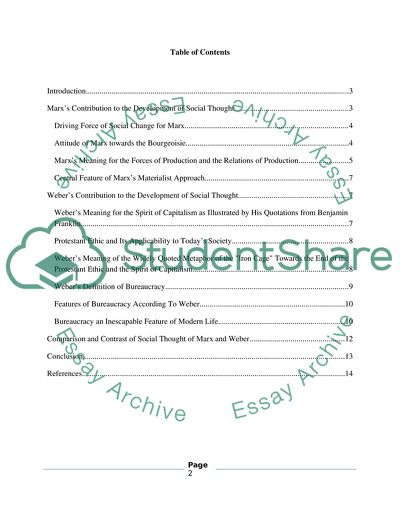Cite this document
(For any two of the following thinkers outline their key ideas and Coursework - 2, n.d.)
For any two of the following thinkers outline their key ideas and Coursework - 2. https://studentshare.org/sociology/1808698-for-any-two-of-the-following-thinkers-outline-their-key-ideas-and-assess-the-extent-to-which-their-work-has-contributed-to-the-development-of-social-thought-marx-and-weber
For any two of the following thinkers outline their key ideas and Coursework - 2. https://studentshare.org/sociology/1808698-for-any-two-of-the-following-thinkers-outline-their-key-ideas-and-assess-the-extent-to-which-their-work-has-contributed-to-the-development-of-social-thought-marx-and-weber
(For Any Two of the Following Thinkers Outline Their Key Ideas and Coursework - 2)
For Any Two of the Following Thinkers Outline Their Key Ideas and Coursework - 2. https://studentshare.org/sociology/1808698-for-any-two-of-the-following-thinkers-outline-their-key-ideas-and-assess-the-extent-to-which-their-work-has-contributed-to-the-development-of-social-thought-marx-and-weber.
For Any Two of the Following Thinkers Outline Their Key Ideas and Coursework - 2. https://studentshare.org/sociology/1808698-for-any-two-of-the-following-thinkers-outline-their-key-ideas-and-assess-the-extent-to-which-their-work-has-contributed-to-the-development-of-social-thought-marx-and-weber.
“For Any Two of the Following Thinkers Outline Their Key Ideas and Coursework - 2”. https://studentshare.org/sociology/1808698-for-any-two-of-the-following-thinkers-outline-their-key-ideas-and-assess-the-extent-to-which-their-work-has-contributed-to-the-development-of-social-thought-marx-and-weber.


